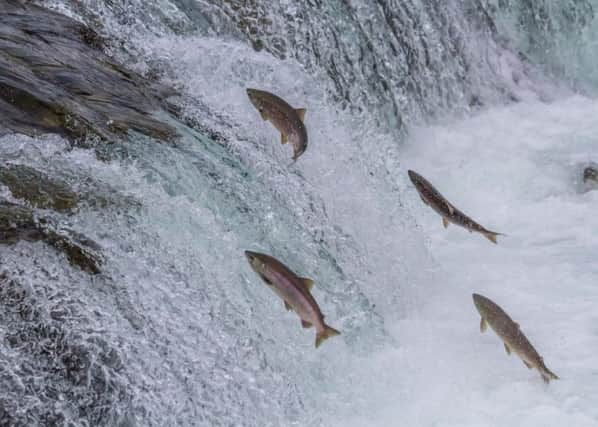Law change proposed to reverse declines of valuable fish stocks


The outlook for fish species on the country’s waterways has looked brighter in recent months with projects in Yorkshire among others across the country that have delivered results, but the Government believes more action is needed to revitalise stocks.
Proposed new legislation will make taking action to improve fish passage a legal requirement for “some critical obstructions”, aiming to address obstacles that still prevent or delay fish on their journeys. Landowners and national bodies such as the Environment Agency could be encumbered to act.
Advertisement
Hide AdAdvertisement
Hide AdThe Department for Environment, Food and Rural Affairs will hold a consultation on the changes, but it hopes any new rules will lead to gains not unlike those seen on the River Don and the River Aire in parts of Yorkshire.
The Environment Agency is leading projects on both rivers that are designed to help fish reach historic spawning grounds which had previously been cut off by industrial activity. Early work to create a ‘fish highway’ on the Don and a similar project on the Aire have led to sightings of migratory salmon and sea trout just downstream of Sheffield and Leeds in the last six months.
Atlantic salmon have been absent from the Don for around 150 years but they have also been seen in the river on the eastern edge of Rotherham where a new hydropower scheme completed by Barn Energy at Aldwarke in October includes a specially designed passage to allow salmon, other fish and eels swim upstream.
Historically, salmon born in English rivers have been known to swim to the Atlantic to mature for up to three years before returning to the same river to spawn.
Advertisement
Hide AdAdvertisement
Hide AdSpeaking during a visit to a fish passage project led by The Rivers Trust in Cornwall, Fisheries Minister George Eustice said: “Addressing the decline in fish stocks not only benefits the environment, but boosts the economy too, improving angling opportunities and benefitting commercial freshwater fisheries, helping the rural economy to thrive.”
Four million anglers in England and Wales spend £3bn on angling every year, supporting around 37,000 full-time jobs.
Arlin Rickard, chief executive of The Rivers Trust, said: “We welcome the introduction of new legislation to promote the free passage of fish and other benefiting species. Our national network of Rivers Trusts will be working closely with water companies, drainage authorities, river owners and farms to seek cost effective solutions to enable fish to migrate freely throughout our rivers.”
Since 2009, the Environment Agency and partners have installed 82 fish passes on England’s main salmon rivers. Combined with the removal or alteration of other barriers such as weirs, some 5,767km of river has been opened up on salmon rivers.
Advertisement
Hide AdAdvertisement
Hide AdProjects in Yorkshire have included the removal of Newlay Lower weir in Leeds, and a section of Ward End weir and a large weir near Oughtibridge Mill, both in Sheffield, while a fish pass has been opened at Goldsborough Mill on the River Nidd in North Yorkshire.
The region’s rivers are home to a variety of species such as brown trout, barbel, chub, dace, pike and perch.